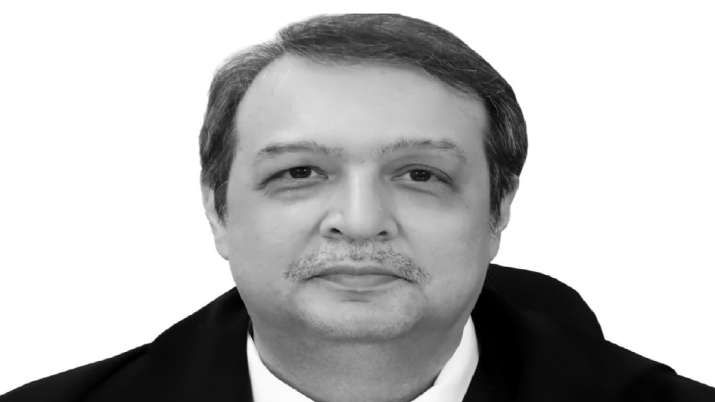
Supreme Court Justice JB Paridwala
Highlight
- Justice JB Pardiwala says only ‘rule of law’ has to be kept in mind while delivering verdict
- Judicial decisions cannot be a reflection of the impact of public opinion, he said.
- Supreme Court judges speaking at the second Justice HR Khanna Memorial National Symposium
Supreme Court judge Justice JB Pardiwala on Sunday said the apex court has to take into account only the “rule of law” while deciding disputes as “judicial decisions cannot be a reflection of the influence of public opinion”.
Emphasizing the primacy of the rule of law over popular public sentiment, Justice Pardiwala observed that balancing the intention and demand of the majority population on the one hand and affirming the rule of law on the other is a “difficult exercise”.
“To tread the link between the two, which requires immense judicial craftsmanship, that is ‘log kya kahenge, log kya sochhenge’ (what people will say, what they will think) is a puzzle that every judge has to pen every time. For bothers a decision down,” he said.
The apex court judge was speaking at the second Justice HR Khanna Memorial National Symposium organized by Dr Ram Manohar Lohia National Law University, Lucknow and National Law University, Odisha as well as the Confederation of National Law Universities (Cain Foundation) alumni. ,
“I firmly believe that it is for the Supreme Court of the country to decide taking into account only one thing that is the rule of law…. Judicial decisions cannot be a reflection of the influence of public opinion… . “
“I believe in a democracy, we have systematic agreements to live by court decisions. It doesn’t mean that court decisions are always correct and free from all other considerations. We just want to live by them. In a democracy, law is more important,” he said while speaking on the topic “Vox Populi v. Rule of Law: Supreme Court of India”.
Justice Pardiwala also said that digital and social media in the country need to be compulsorily regulated to uphold the rule of law under the Constitution as it crosses the “lakshmanrekha” and leads to personal, agenda-driven attacks on judges. is “dangerous”. ,
“The judiciary cannot live independently of society, but the rule of law is impossible,” he said.
Justice Pardiwala observed that it required a firm belief in constitutional values and an ideological understanding of the rule of law to address popular public sentiments, which at times do not conform to the legal plans.
He said, “The rule of law is the most distinctive feature of Indian democracy. I firmly believe that there is no exception to this. The rule of law must prevail and public opinion must be under the rule of law.”
The Supreme Court judge cited jurists and said, “We are custodians of rights and we have to talk about things that people may not like to hear”.
He said that in an exceptional case a judge may have to be aware of the sentiments of the society and the impact of the decision which he is going to deliver.
Justice Pardiwala referred to various judgments including the verdict allowing entry of women of all ages into Kerala’s Sabarimala temple and decriminalizing consensual gay sex and said these were against popular public sentiment but the concept are in line with. The rule of law.
“The will of the people must prevail. The Constitution of India provides for an elected President… State Legislatures are also elected. But Supreme Court judges are not elected and neither are High Court judges, yet The constitution confers powers to conduct judicial review and give writs that courts can set aside unconstitutional acts of the executive and elected representatives of the people assembled in Parliament and State Legislatures.
He said that it does not necessarily conclude that the judiciary is superior to the legislature and it merely assumes that the power of the people enshrined in the Constitution is superior to both.
Justice Pardiwala said, “The role of the judiciary and the role of the Constitution is the sacred faith shown by the people.”
Stating that judges should not participate in social media discussions, he said, “Judges never speak with their tongue, only their decisions.”
The Supreme Court judge said, “The rule of law is a distinctive feature of the Indian Constitution. Countries that do not have a parliamentary system have the rule of law. Even a dictatorship can claim that it is by law.” reigns.”
read also , PM Modi’s message to BJP leaders in Hyderabad meeting, ‘Learn from mistakes of parties when they fall’